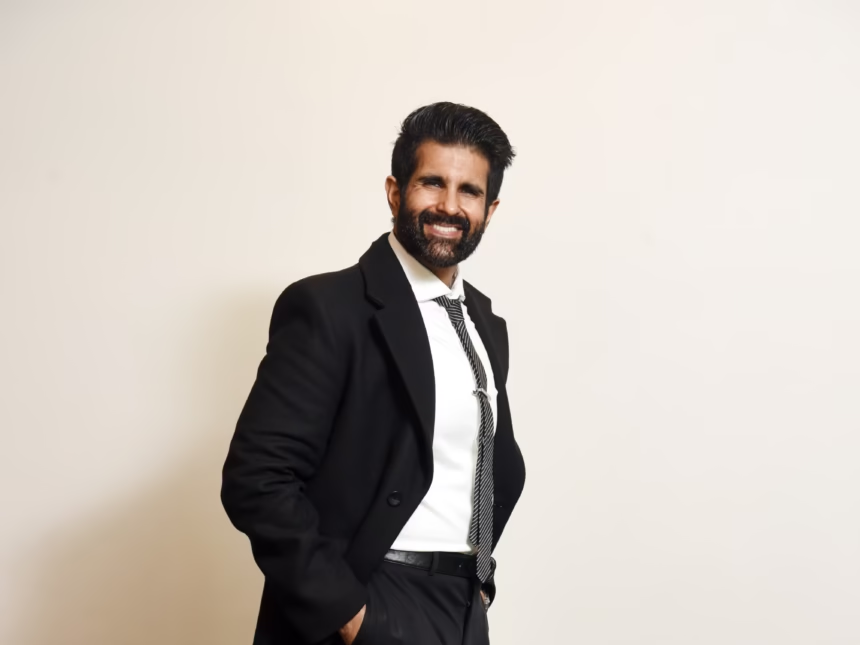Selected as WCRCLEADERS, Inspirational Leaders of India, Jaya Vaidhyanathan of BCT Digital is inspiring confidence, trust and excellence through stellar leadership skills and lead from the front philosophy.
In conversation with Jaya Vaidhyanathan, CEO, BCT Digital.
What makes a strong leader? What are your key leadership strengths that are the strongest attributes of success?
A strong leader is one who has the courage, passion and ability to motivate teams to works towards goals. As a leader, I equip my people with a strong sense of direction, while inspiring them to achieve more, lending lly examples that demonstrate courage and commitment. I encourage them to pursue their passion as relentlessly as I have, and say ‘yes’ to setting ambitious goals for themselves and their teams. Recognition is a critical aspect of leadership. I believe in instant feedback – recognizing the contributions of a team or an individual at the right time, thereby empowering them and keeping motivation levels high. This approach has built some of the finest teams at BCT Digital, that rise above obstacles, thrive on collaboration, and remain steadfast in their commitment to a common objective.
An accomplishment that you consider to be the most significant in your career? What challenges did you face to reach success?
As an entrepreneurial venture, my Fintech company, BCT Digital, focuses on the grave problem of rising Non-Performing Assets (NPA) in India. Our full spectrum of products enables banks to bring back between 500 M USO to 1 B USO per bank into the system every year. We set off with just one product: rt360 – Early Warning System (EWS), custom-built to tackle the issue of NPAs. Today, rt360 has grown into a full-fledged, award-winning risk management product suite that is tailored to banks and financial institutions. One of the outstanding features of this product is that it is built by bankers for bankers, and is completely “Made in India”. Interestingly, although rt360 was custom designed for India’s complex banking system, it is now widely adopted by global markets through the approach of ‘Reverse Innovation: Make Local, Go Global’. One of the initial challenges we faced with rt360 was in early adoption. In India, for instance, qualifying for a public sector RFP meant meeting numerous criteria and dependencies. Additionally, there were several operational challenges, from setting up base to staffing, securing investor funding and getting stakeholder buy-in. Once we surpassed these challenges, the room of opportunities quickly opened up – and it was glorious!

What is a role of a leader in these challenging times? List 5 in order of priority.
I see a good leader as someone who draws on his or her strengths to inspire people during the best and worst of times.
These five qualities are most valuable in my opinion:
Integrity with purpose-oriented perspective: Leaders need to have the ability to swoop and soar at the same time. Celebrating shared successes and nurturing an outcome-based organizational culture are integral to this.
Faith in the entrepreneurial spirit: A good leader holds on to their vision and keeps going until they break through, no matter the odds. This is an instrumental trait in overcoming challenges of today’s disruptive world.
Ubiquitous networking – The simple truth: the more you network, the stronger your business relationships become. A good leader is never afraid to reach out and draw on their connections.
Risks versus rewards: Leaders are not afraid to take calculated risks and take the plunge when the time is right – after thorough analysis and assessments.
Focus on holistic well-being: Health is one’s first and top-most investment. Good leaders consciously dedicate their time for best practices that ensure their all-round health and well-being.
What is your vision and how do you share that with your shareholders, employees and others?
My vision is to be recognized as a global FinTech leader for my efforts to transform BFSI-related risk management through specialized products that are built in India. The first step in this involves addressing the non-performing asset (NPA) issue that has been plaguing India’s financial system, impacting over Rs. I0 trillion.
We founded BCT Digital to provide much-needed solutions that will underpin the risk management and recovery efforts of the banking industry. We leveraged advanced technologies like AI, relying on the goto-market strategy of ‘Make Local, Go Global’ -meaning our products would be specific to India’s banking industry, yet scalable to the global markets. Using a “Business First, Technology Agnostic” approach, our team of bankers, risk practitioners and technology experts work together to solve this complex challenge.
How do you drive active business renovations and how does that impact your subordinates?
We base our product philosophy on building for key and important adjacencies in the GRC space. We essentially navigated the “blue-ocean” marketplace, exploring niche areas in the risk management space not covered by dominant players. We also realized how every country has unique risk management challenges that cannot be addressed by a globalized, one-size-fits-all approach. The success of rt360 eventually spurred further investments on disruptive technologies, which would aid and expedite our move to next-generation banking- an advancement augmented by BCT Digital’s strategic vision.
Impact on subordinates:
We leverage advanced technologies, like ML, Predictive Analytics, Big Data, Micro Services, Mobility, and Open Banking through APls, to serve as both OEM and implementation partners to clients. Our approach is founded on mutual trust and the assurance of long-term support. Our team constitutes banking and technology experts, who devise innovative solutions conducive to the disruptive banking environment of today. Teams are inspired to work in tandem towards a common goal with no micromanagement. Our motto is to let trust run the show. Credit is given where it’s due and mistakes are even encouraged, as they eventually lead to success. Working in such an open environment has its own rewards by way of increasing motivation, innovation and team morale – and the results speak for themselves.
How do you integrate corporate philanthropy or corporate social responsibility as a part of your business strategies?
I am actively involved in advancing the global gender agenda. A good part of my personal life has been . spent on empowering women and advancing their cause. I have been advocating the same through several international nonprofit outreach programs held in collaboration with Asian Business Leadership Forum, Women Icon India and so on. I also chair the Women’s Advancement, Transformation, Empowerment, and Recognition (WATER) Committee at BCT Digital – a platform that promotes gender equality and women empowerment at workplace. WATER empowers women’s economic progress through custom-designed tools, techniques, support frameworks, as well as learning and mentorship initiatives at workplace. WATER has successfully improved BCT Digital’s women diversity ratio by 10% in 2020. Retention of women employees increased by 30% compared to last year.
What has been your driving force or philosophy in life?
My professional track can be summed up in the words of Robert Frost, “Two roads diverged in a wood, and I – I took the one less travelled by, And that has made all the difference.” The road less travelled has always appealed to me, as easy roads lead to no new destinations. I entered the field of investment banking 25 years ago, when it was a male-dominated industry and a challenging career choice. My efforts to explore opportunities in the so-considered “difficult fields” have shaped me into the person I am today.
I continue to challenge myself every day. No dream is too big to achieve. Even the smallest of goals bring you a step closer to your personal best. My days are spent learning something new, engaging in hobbies, investing in health and taking yet another step towards securing my professional milestones. This has been my winning philosophy.
What are the other philanthropic works you arc involved in?
There are perceivable gaps in India’s NGOs when it comes to fundraising, disbursements and governance. These are some of the areas where I provide them with professional assistance. I also encourage my executives to lend their expertise to the sector in the areas of funding, investments, risk, and logistics planning.
I collaborate with several social organizations on causes ranging from social transformation, economic inclusion and public healthcare to youth & women empowerment, education and mental health. I am on the board of Mastermind Foundation, and an advisor and consultant for the rural healthcare-focused DIWW AAS. I also work with several prominent NGOs that rehabilitate mentally challenged women. I also head BCT’s internal CSR efforts.
For my contributions towards women’s education, safety, health, wellness, sustainability, entrepreneurship and diversity and inclusion, I was awarded the CSR award from WeLeed.
The outreach programs I spearheaded have established an estimated l 00,000 touch points so far. For example, Food for Hunger – Mastermind Foundation’s COVID-19 relief services – distributed more than 65,000 cooked food packs for the homeless and more than 2,000 dry ration packs to migrant workers. MMF is also the official counselling service provider for 32 districts of the Tamil Nadu, Punjab & Puducherry Police and their families. Pan India services are offered in 12 regional languages, covering more than 80 million people.
How do you define success and how do you measure up to your own definition?
For me, success is all about learning something new. I have spent every stage of my life preparing for the next. The learning is constant and I enjoy it. Success is also about being clear about where you want to be – after all, you are paving the road for future generations to follow. Whatever success you achieve needs to be rooted in ethics, authenticity and transparency. That’s the mirror I hold up to myself at every major juncture.
In your opinion what is the most significant aspect of leadership?
True leadership is the ability to motivate people to work in tandem towards a collaborative vision. It’s all about setting expectations and letting trust run the show. That being said, I believe a leader ought to put him or her at the forefront of the entire journey, giving credit where it’s due and taking the blame when things don’t go as planned.
Your perception of an empowered society. How far your industry has/can contribute for the same?
My perception of an empowered society is one where women are held in equal regard as men. I was fortunate enough to be nurtured in an environment where individual contributions are valued, irrespective of gender. But even today, in a lot of organizations – more so in the STEM fields than anywhere else – there is glaring discrimination and gender bias. It’s quite rare to see women in senior positions of companies, to this day. Even after they join, for a lot of reasons, they are forced to step down midway.
My take is this: while empowerment needs to begin at home, the corporate sector should be keen to pitch in wherever possible. Corporate mentoring at high schools can tremendously help in attracting girls into STEM careers. Corporate support can also help in ensuring that women continue on their jobs despite the hundreds of obstacles they are faced with along the way. Administrative intervention at the right time matters more than we think. There needs to be immediate focus on retention, by way of administrative support at the right time.
Esprit de corps: How to bring fairness and equality to all?
With the growing number of millennials in the workforce, conventional efforts towards eliminating gender bias must reform. We must take on an outlook rooted in respect, merit-based recognition and performance-based growth. In terms of gender equality at the workplace, there are three perspectives that we need to recognize. One, it is important to celebrate female role models. Two, equally important is it for senior women in the industry to mentor young leaders who are women. And three, companies need to bring in more women at the board level. Beyond bringing fresh perspectives to the table, the latter would give young women the opportunity to look up to their role models and draw inspiration from their
Journey.









